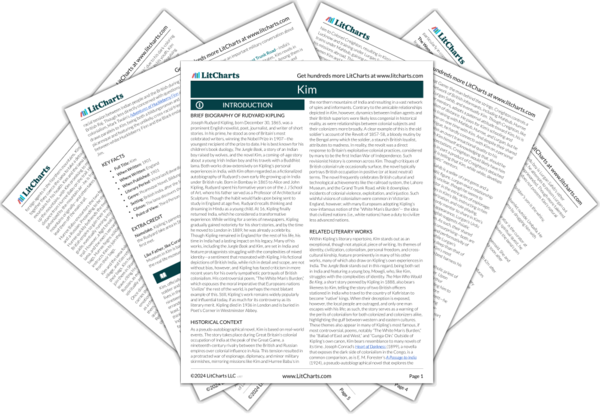Here, Mahbub challenges Kim’s assumption of shared identity, pointing out that he is a “Pathan” and Kim is a “Sahib.” This rigid vision of racial identity contradicts with Kim’s relatively fluid one, where racial identity is a nuanced balance of upbringing, language, and skin color. Though he does not explicitly say so, it seems as though Mahbub is reminding Kim that race, while perhaps constructed, is not without consequences: after all, Kim’s recent opportunities are largely a product of his whiteness.
